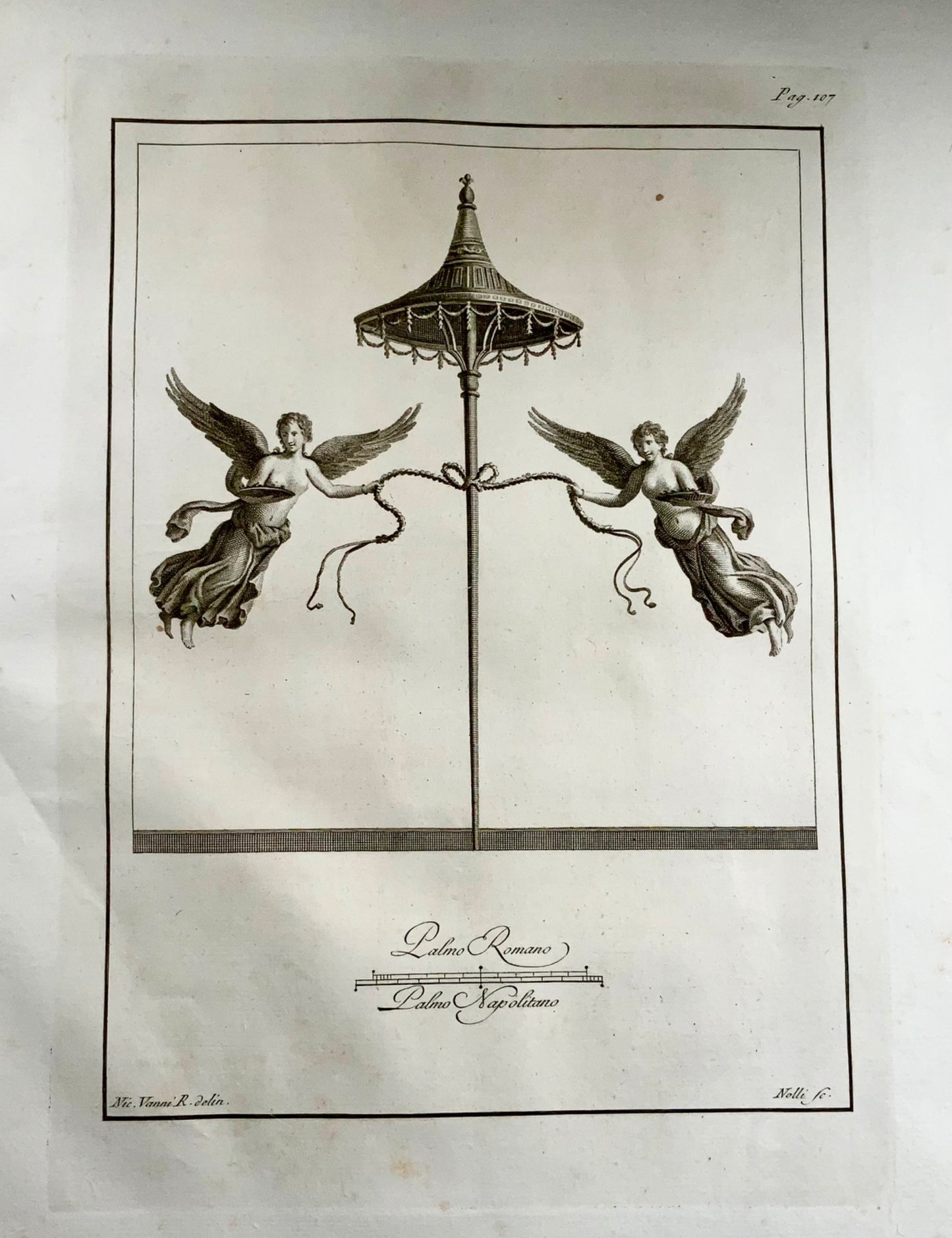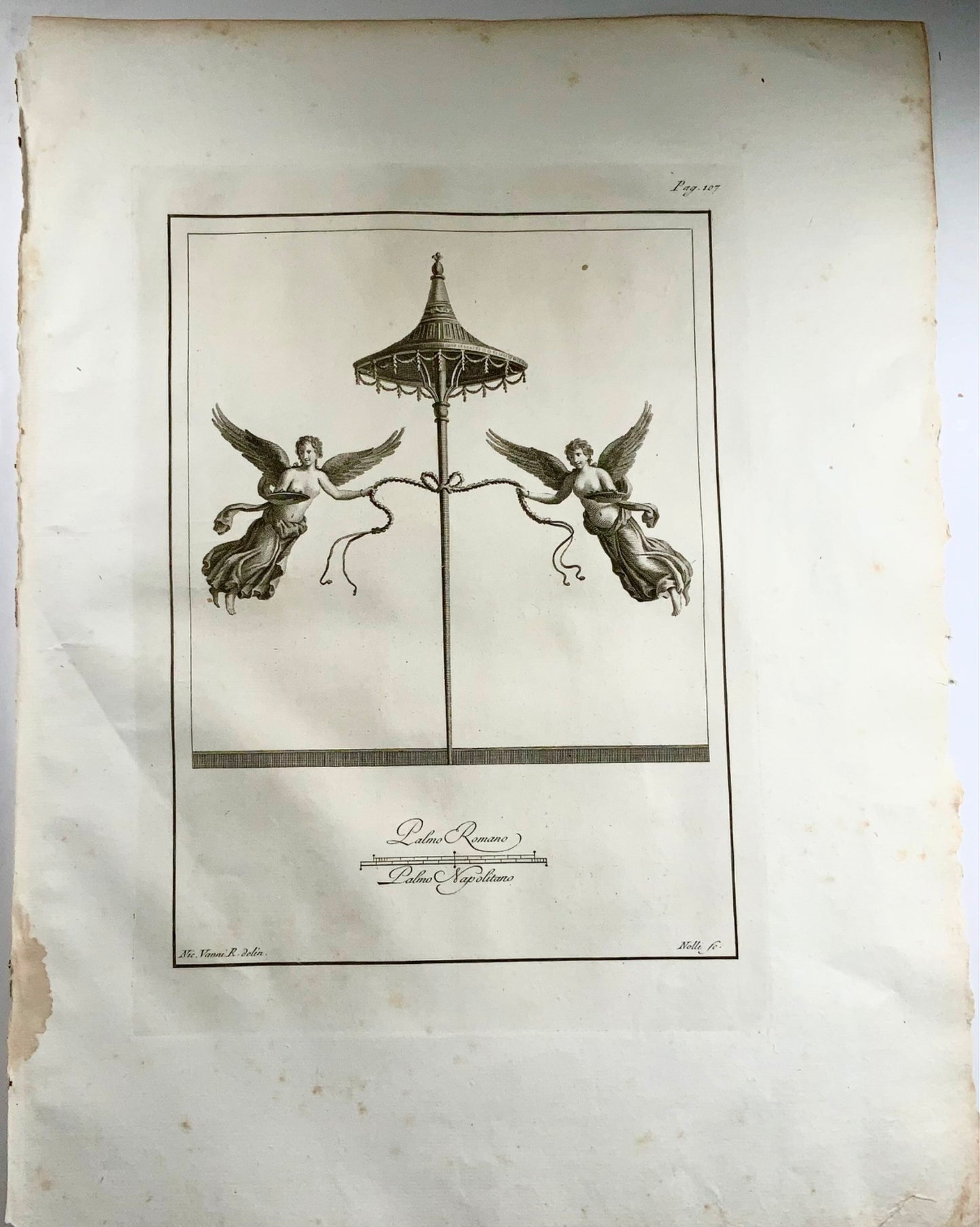1757 Carlo Nolli after Vanni, Fresco from Herculaneum, 51cm
1757 Carlo Nolli after Vanni, Fresco from Herculaneum, 51cm
Couldn't load pickup availability
Carlo Nolli, Ancient Roman Fresco, original etching hand coloured.
Mid-18th Century.
Original etching from the end of the 18th century, realized by Carlo Nolli.
Uncut example with large margins: 50.7 x 37 cm
The etching belongs to the print-series Antiquities of Herculaneum Exposed (original title: Le Antichità di Ercolano Esposte), eight volumes of engravings of the finds from the excavation of the ruins of Herculaneum in the Kingdom of Naples (today Campania, Italy).
It was published between 1757 and 1792 by the Regia Stamperia.
Despite the title, the Antiquity of Herculaneum shows objects from all the excavations undertaken by the Bourbons in the Gulf of Naples. These include Pompeii, Stabia and two sites of Herculaneum: Resina and Portici.
The Bourbon king Charles commissioned fifteen scholars to create a new “Herculaneum Academy” to study the finds and publish the results of the archaeological excavations of the sites. The engravings are of high quality and the accompanying text shows a large scholarship. They were made by 25 leading artists involved by the King to prepare drawings and engravings on the finds, among which we find Giovanni Elia Morghen, Carlo Nolli, Luigi Vanvitelli and Giovanni Battista Casanova. The "Antiquity" was designed more to amaze readers with the quality of the objects in the collection of the King of Naples than to be used in research, following and increasing the interest of eighteenth-century society for classical culture and art in particular.
Through the exaltation of the classical concept of proportion and harmony, the book inspired the neoclassical movement in Europe, giving artists and decorators access to a vast workshop of Hellenistic motifs.
Minor stain to very outer margin.
Ref .: National Gallery (Washington), Mark J. Millard Architectural, IV (2000), n. 1. L. Garcia y Garcia, Nova bibliotheca Pompeiana (2 v., 1998).
Royal Institute of British Architects, British Architectural Library ... First Printed Books, 1 (1994), no. 112.
U. Pannuti, Engravers and designers of the Royal Printing House of Naples in the 18th century: the publication of the Antiquities of Herculaneum, in Xenia antiqua, 9 (2000), p. 151-178.
V. Trombetta, The edition of The Antiquities of Herculaneum exhibited in Rendiconti of the Academy of Archeology, Letters and Fine Arts of Naples, 59 (1984), p.151-172
Will be sent rolled.

Share



Subscribe to our emails
Subscribe to our mailing list for insider news, product launches, and more.


